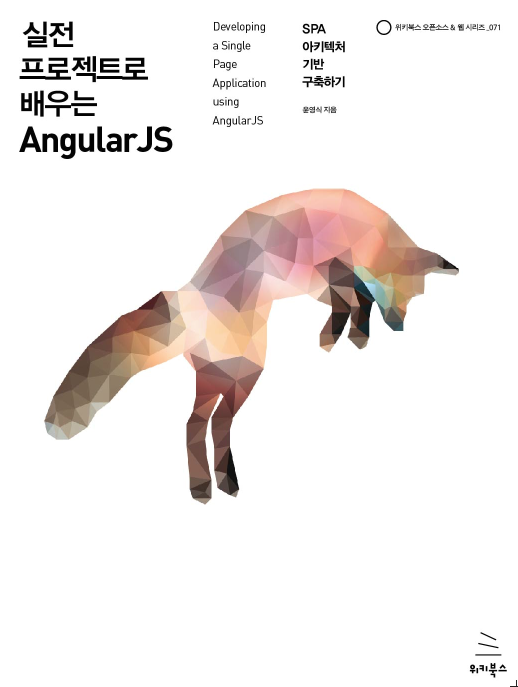자바기반 서버 환경 구축을 위한 기반 기술 설정에 대하여 알아보자. 우선 빌드환경인 Maven과 Spring Framework을 설치하고 간단히 RESTful 호출 테스트를 해보자
1. Eclipse 플러그인 설치
- Eclipse Juno를 다운로드하여 설치 및 JDK1.6 사용
- Sublime text 사용에 익숙하다면 http://eclipsecolorthemes.org/ 플러그인을 설치후 에서 Sublime Theme으로 바꾸어 사용한다
- Eclipse Marketplace에서
+ STS (Spring Tool Suite - juno 4.2)를 설치
+ Maven (Maven Integration for Eclipse - juno and newer)를 설치
+ Git 사용한다면 EGit - Git Team Provider를 설치
+ SVN 사용한다면 Subversive - SVN Team Provider 설치 (참조1, 참조2)
> "Help/Install New Software..."에서
> SVN Connector - http://community.polarion.com/projects/subversive/download/eclipse/3.0/juno-site/ 통해 설치
Mac의 HL 부분은 unselect
> SVN Kit 1.7.8 선택한다.

2. Spring MVC 프로젝트 구성
- Maven으로 Simple project를 만든다. jar 배포 프로젝트로 만듦
- 프로퍼티에서 Project facets에서 "Dynamics Web Module"를 선택하고 "Further configuration available..."에서 webapp 설정
- webapp를 설정하였으면 src/main 밑으로 강제 이동시킴

- 프로퍼티에서 Deployment Assembly에서 add... 하여 Maven Denpendencies... 라이브러리가 WEB-INF/lib에 포함되도록 설정
(참조)

- pom.xml 에서 <packaging>jar</packaging>에서 <packaging>war</packaging>로 바꾼다
- 하기 의존성 라이브러리를 추가한다
+ Spring Framework : v3.2.0
+ JDK : v1.6
+ JUnit : v4.11
<project xmlns="http://maven.apache.org/POM/4.0.0" xmlns:xsi="http://www.w3.org/2001/XMLSchema-instance"
xsi:schemaLocation="http://maven.apache.org/POM/4.0.0 http://maven.apache.org/xsd/maven-4.0.0.xsd">
<modelVersion>4.0.0</modelVersion>
<groupId>com.ysyun</groupId>
<artifactId>DashboardTest</artifactId>
<version>0.0.1-SNAPSHOT</version>
<packaging>war</packaging>
<properties>
<spring.version>3.2.0.RELEASE</spring.version>
<junit.version>4.11</junit.version>
<jdk.version>1.6</jdk.version>
</properties>
<dependencies>
<!-- Spring 3 dependencies -->
<dependency>
<groupId>org.springframework</groupId>
<artifactId>spring-core</artifactId>
<version>${spring.version}</version>
</dependency>
<dependency>
<groupId>org.springframework</groupId>
<artifactId>spring-web</artifactId>
<version>${spring.version}</version>
</dependency>
<dependency>
<groupId>org.springframework</groupId>
<artifactId>spring-webmvc</artifactId>
<version>${spring.version}</version>
</dependency>
<dependency>
<groupId>junit</groupId>
<artifactId>junit</artifactId>
<version>${junit.version}</version>
<scope>test</scope>
</dependency>
</dependencies>
<build>
<finalName>DashboardTest</finalName>
<plugins>
<plugin>
<groupId>org.apache.maven.plugins</groupId>
<artifactId>maven-compiler-plugin</artifactId>
<version>3.0</version>
<configuration>
<source>${jdk.version}</source>
<target>${jdk.version}</target>
</configuration>
</plugin>
</plugins>
</build>
</project>
3. RESTful 테스트 하기
- Controller 추가하기 : RESTful uri 설정
package com.lge.dashboard;
import org.springframework.stereotype.Controller;
import org.springframework.ui.ModelMap;
import org.springframework.web.bind.annotation.PathVariable;
import org.springframework.web.bind.annotation.RequestMapping;
import org.springframework.web.bind.annotation.RequestMethod;
@Controller
@RequestMapping("/")
public class HelloController {
@RequestMapping(value="/welcome", method = RequestMethod.GET)
public String welcome(ModelMap model) {
model.addAttribute("message", "Maven Web Project + Spring 3 MVC - welcome()");
//Spring uses InternalResourceViewResolver and return back index.jsp
return "index";
}
@RequestMapping(value="/welcome/{name}", method = RequestMethod.GET)
public String welcomeName(@PathVariable String name, ModelMap model) {
model.addAttribute("message", "Maven Web Project + Spring 3 MVC - " + name);
return "index";
}
}
- web.xml 설정 : spring dispatcher를 설정한다
<?xml version="1.0" encoding="UTF-8"?>
<web-app xmlns:xsi="http://www.w3.org/2001/XMLSchema-instance"
xmlns="http://java.sun.com/xml/ns/javaee" xmlns:web="http://java.sun.com/xml/ns/javaee/web-app_2_5.xsd"
xsi:schemaLocation="http://java.sun.com/xml/ns/javaee http://java.sun.com/xml/ns/javaee/web-app_3_0.xsd"
id="WebApp_ID" version="3.0">
<display-name>Counter Web Application</display-name>
<servlet>
<servlet-name>mvc-dispatcher</servlet-name>
<servlet-class>org.springframework.web.servlet.DispatcherServlet</servlet-class>
<load-on-startup>1</load-on-startup>
</servlet>
<servlet-mapping>
<servlet-name>mvc-dispatcher</servlet-name>
<url-pattern>/</url-pattern>
</servlet-mapping>
<context-param>
<param-name>contextConfigLocation</param-name>
<param-value>/WEB-INF/mvc-dispatcher-servlet.xml</param-value>
</context-param>
<listener>
<listener-class>org.springframework.web.context.ContextLoaderListener</listener-class>
</listener>
</web-app>
- mvc-dispathcer-servlet.xml 스프링 환경설정
<beans xmlns="http://www.springframework.org/schema/beans"
xmlns:context="http://www.springframework.org/schema/context"
xmlns:xsi="http://www.w3.org/2001/XMLSchema-instance"
xsi:schemaLocation="
http://www.springframework.org/schema/beans
http://www.springframework.org/schema/beans/spring-beans-3.0.xsd
http://www.springframework.org/schema/context
http://www.springframework.org/schema/context/spring-context-3.0.xsd">
<context:component-scan base-package="com.lge.*" />
<bean
class="org.springframework.web.servlet.view.InternalResourceViewResolver">
<property name="prefix">
<value>/WEB-INF/pages/</value>
</property>
<property name="suffix">
<value>.jsp</value>
</property>
</bean>
</beans>
- WEB-INF/pages폴더를 만들고 index.jsp 파일 생성
<html>
<body>
<h2>Hello World!</h2>
<h4>Message : ${message}</h1>
</body>
</html>
- 전체 설정 정보

- Tomcat v7.0 설정이 되었다면 Run As 에서 "Run on Server"로 DashboardTest 컨텍스트 추가하여 Tomcat 기동
/<contextName>/welcome/<value> 넣어서 호출하면 하기와 같이 나온다

- maven Goal에 대한 명령을 수행할 경우
Goal은 ant의 target과 같은 개념으로, mvn의 경우 pre-defined goal을 가지고 있다.
mvn compile : 컴파일 수행
mvn package : jar 파일로 패키징
mvn test : JUnit 테스트 수행
mvn install : local repository (PC내의 디렉토리)에 해당 jar 파일을 저장
mvn deploy : remote repository (Nexus)에 jar 파일 저장
mvn clean : 컴파일 내용 모두 삭제
mvn build : 위의 예제는 일반적은 spring-java 코드로 build goal을 제공하지 않는다.
(Eclipse에서 run as하면 나와서 헷갈리게 만드는데) build goal을 지원하는 프로젝트를 만들거나 또는 pom.xml안에 인위적으로 build goal을 지정해줘야 한다. 보통 clean install 등 여러 명령을 스페이스로 구분하여 파라미터를 줄 수 있다
- 만들어진 pom.xml 파일
<project xmlns="http://maven.apache.org/POM/4.0.0" xmlns:xsi="http://www.w3.org/2001/XMLSchema-instance"
xsi:schemaLocation="http://maven.apache.org/POM/4.0.0 http://maven.apache.org/xsd/maven-4.0.0.xsd">
<modelVersion>4.0.0</modelVersion>
<groupId>com.ysyun</groupId>
<artifactId>DashboardTest</artifactId>
<version>0.0.1-SNAPSHOT</version>
<packaging>war</packaging>
<url>http://maven.apache.org</url>
<properties>
<project.build.sourceEncoding>UTF-8</project.build.sourceEncoding>
<spring.version>3.2.0.RELEASE</spring.version>
<junit.version>4.11</junit.version>
<jdk.version>1.6</jdk.version>
</properties>
<dependencies>
<dependency>
<groupId>org.springframework</groupId>
<artifactId>spring-core</artifactId>
<version>${spring.version}</version>
</dependency>
<dependency>
<groupId>org.springframework</groupId>
<artifactId>spring-web</artifactId>
<version>${spring.version}</version>
</dependency>
<dependency>
<groupId>org.springframework</groupId>
<artifactId>spring-webmvc</artifactId>
<version>${spring.version}</version>
</dependency>
<dependency>
<groupId>junit</groupId>
<artifactId>junit</artifactId>
<version>${junit.version}</version>
<scope>test</scope>
</dependency>
</dependencies>
<build>
<finalName>DashboardTest</finalName>
<plugins>
<plugin>
<groupId>org.apache.maven.plugins</groupId>
<artifactId>maven-compiler-plugin</artifactId>
<version>3.0</version>
<configuration>
<source>${jdk.version}</source>
<target>${jdk.version}</target>
</configuration>
</plugin>
</plugins>
</build>
</project>
4. Spring 에 대한 Enterprise 환경 설정 원칙
- Enterprise Spring Best Practices
- Bean Post Processors를 등록하는 어노테이션
RequiredAnnotationBeanPostProcessor – (@Required)
CommonAnnotationBeanPostProcessor – (@PostConstruct, @PreDestroy, @Resource, etc.)
AutowiredAnnotationBeanPostProcessor – (@Autowired, @Value, @Inject, etc.)
PersistenceAnnotationBeanPostProcessor – (@PersistenceUnit, @PersistenceContext, etc.)
- annotation-config 지시자 설정
<context:annotation-config/>
- 애플리케이션 컴포넌트 scanning 지시자 설정
<context:component-scan base-package="com.gordondickens.enterprisespring" use-default-filters="false">
<context:exclude-filter
expression="org.springframework.stereotype.Controller"
type="annotation"/>
</context:component-scan>
- 스캐닝 원칙
+ Component scanning should ONLY be configured in the bootstrap config file, not in every XML config file
+ Do NOT also include the <context:annotation-config/> directive, it is automatically included by component scan
+ Do NOT start scanning from “com” and/or “org”, as this will scan ALL sub packages in all of the project and jars for candidates!
+ Be as specific as possible with the packages
+ Do NOT cross application boundaries with component-scan
+ Create an applicationContext-services.xml for scanning services
+ Create an applicationContext-persistence.xml for persistence and entity beans
+ Create an applicationContext-webmvc.xml for persistence and entity beans
+ Create an applicationContext-webservice.xml for web service beans
+ Import these references into the applicationContext-bootstrap.xml to these elements
Why separate the discovery files into layer specific configuration?
+ Unit testing is easier as discovery of beans is more specific
+ Allows the project to be separated into multiple Jar/Wars
+ Lowers risk of widely scoped discovery issues, overscanning and beans being replaced by multiple scanners
<참조>
- Eclipse Theme 사용방법
- STS + myBatis + RESTful 설정 및 테스트
- Eclipse Juno기반 Spring MVC with maven으로 만드는 과정
- Maven Console 기반 webapp RESTful 서비스 만드는 과정
- AngularJS + SpringMVC 샘플 프로젝트
- Eclipse에서 Maven 개발환경 설정
- Spring에서 Enterprise 환경 설정 원칙













